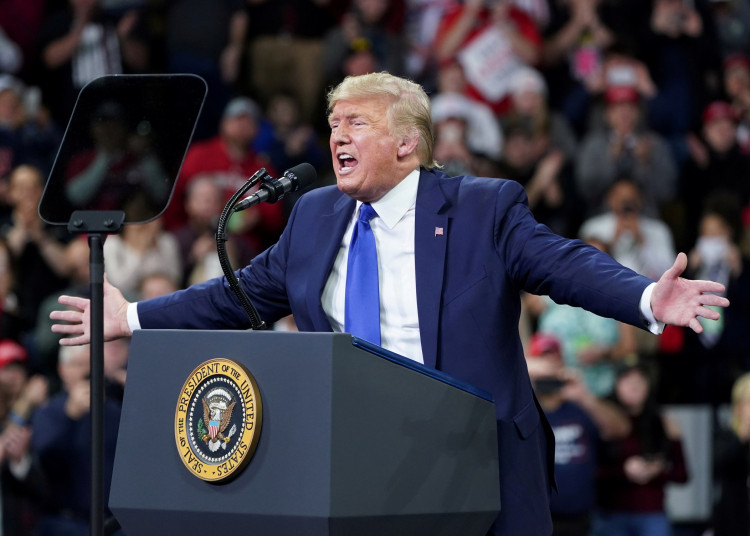President Donald Trump's impeachment defense team that argued his case Saturday and Monday seemed more concerned with pleasing their client than mounting a coherent defense based on the merits and issues of the case before them.
On Saturday, Trump lawyers stuck to Trump's well-worn talking points he'd been mouthing since September 2019. To those saying there was a quid pro quo between Trump and Ukrainian president Volodymyr Zelensky, the answer of Trump lawyer Michael Purpura was "read the transcript," echoing one of Trump's favorite defenses. Purpura also said Trump's phone call with Zelensky was "perfect," a word Trump has used countless times since last year.
He focused on the White House summary of the July 25, 2019 phone call between Trump and Zelensky as the defense's central piece of evidence in the impeachment trial. White House counsel Pat Cipollone, who leads the defense team, called the summary the "best piece of evidence" revealing what took between both men on July 25. For his part, Purpura called the summary "the most important piece of evidence," brushing aside the 28,000 pages of documents presented by the Democrat's impeachment manager who argued the case for Trump's removal from office last week.
And apparently at Trump's orders, the lawyers made the summary the centerpiece of their two-hour presentation that kicked-off their defense of Trump.
And, in a show of arrogance, Purpura declared, "If that were the only piece of evidence we had, it would be enough to show the Democrats' entire theory is unfounded."
Trump's lawyers also echoed their boss in arguing Democrats simply want to nullify the results of the 2016 election and also upend the coming presidential election on November 3.
Trump's defense is based on six key facts, said his lawyers. The first is the call summary doesn't explicitly show Trump conditioning security assistance on anything. The second is Zelensky saying he didn't feel Trump was pressuring him. The third is Ukrainian officials didn't appear to know the military aid had been withheld until after the call.
The fourth is no witnesses testified Trump had said there was a quid pro quo. The fifth says the military assistance reached Ukraine in September without any public action on investigations. The sixth claims Trump's policy toward Ukraine has been generous. The Democrat's arguments last week took on and debunked all these defenses.
All of this was the defense team's version of arguing the merits of the case. Lead lawyer Pat Cipollone had earlier said, "We can talk about the process, we will talk about the law. But today, we are going to confront them on the merits." The merits were nowhere to be found on Saturday. Neither was it there on Monday when Trump's lawyers argued his case for the second day at the Senate using documents and witnesses. On Monday, Trump's counsel dismissed evidence they didn't like and focused on evidence that advanced their contentions.
The second day of Trump's defense was held under the shadow of former national security adviser John Bolton. On Sunday, Bolton revealed in excerpts from his forthcoming book that Trump told him during a conversation in August 2018 to withhold $391 million in military aid for Ukraine until Ukrainian officials led by president Volodymyr Zelensky helped with the Biden investigation Trump kept demanding.
Bolton's exposé led to Democrats demanding Bolton be called to testify as the trial and said his team will include only evidence brought forward during the House impeachment investigation. Oddly, Sekulow has repeatedly criticized the evidence unearthed by Democrats as basically a hoax.
Sekulow chose not to discuss the Bolton bombshell at all. Some political analysts calling it the "smoking gun" that might sway some Republican senators to think for themselves instead of following the party line.
Purpura repeated the discredited claim Trump illegally pressured Zelensky to agree to the quid pro quo because he wanted to fight corruption in Ukraine. Purpura also mentioned another favorite Trump claim that another reason for the latter holding back aid was to advance burden sharing in Ukraine's defense.






